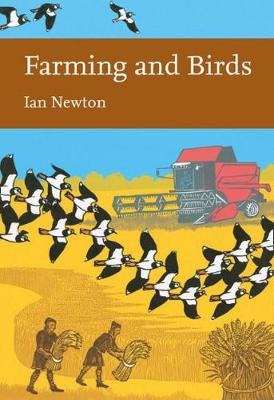33%OFF

Stock image for illustration purposes only - book cover, edition or condition may vary.
Farming and Birds (Collins New Naturalist Library, Book 135)
Ian Newton
€ 75.11
€ 50.50
FREE Delivery in Ireland
Description for Farming and Birds (Collins New Naturalist Library, Book 135)
Hardcover. The way that people use the land - whether for food production, recreation, housing and other infrastructure - shapes the habitats of birds and other wildlife. Over time, almost all of the landscapes of developed countries have been created largely by human action, and have been continually modified as human needs and desires have changed. Series: Collins New Naturalist Library. Num Pages: 640 pages. BIC Classification: WNCB. Category: (G) General (US: Trade). Dimension: 222 x 155. Weight in Grams: 270.
Given the underlying topography, the scenery over most of Britain has been created largely by human activities. Over the centuries, landscapes have been continually modified as human needs and desires have changed. Each major change in land use has brought changes to the native plants and animals, continually altering the distribution and abundance of species. This is apparent from the...
Read moreProduct Details
Publisher
HarperCollins Publishers
Format
Hardback
Publication date
2017
Series
Collins New Naturalist Library
Condition
New
Number of Pages
640
Place of Publication
London, United Kingdom
ISBN
9780008147891
SKU
V9780008147891
Shipping Time
Usually ships in 5 to 9 working days
Ref
99-98
About Ian Newton
Ian Newton is an ornithologist and applied scientist, and a leading expert on bird ecology and biogeography, specialising in finches, waterfowl and birds of prey, especially the sparrowhawk. He graduated from Bristol University and gained his doctorate at Oxford. He joined the NERC in 1967, initially studying population ecology of geese and finches, followed by the impact of pesticides on...
Read moreReviews for Farming and Birds (Collins New Naturalist Library, Book 135)
`A masterly and wide-ranging account of the consequences for bird populations of the recent shifts in British farming practices. Ian Newton's perspective on one of the greatest environmental issues of modern times is especially valuable, having personally researched birds throughout the decades when agricultural intensification was at its height ... This book should become a classic account of how land-use...
Read more